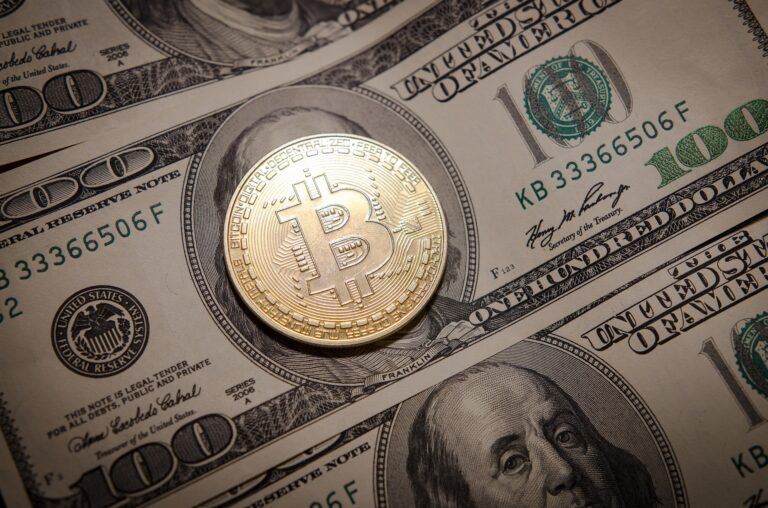On July 8, Anthony Scaramucci, founder and co-managing partner of SkyBridge Capital (a global alternative investment firm that deals in hedge funds, digital assets, private equity, and real estate) appeared on CNBC’s “Closing Bell” to share his insights on Bitcoin and the broader cryptocurrency market. In a detailed discussion with the hosts, Scaramucci provided an optimistic outlook on Bitcoin, highlighted the impact of recent events in the crypto sector, and commented on the political landscape’s influence on digital assets.
Before founding SkyBridge in 2005, Scaramucci co-founded Oscar Capital Management, which was later sold to Neuberger Berman. Scaramucci briefly served as the White House Communications Director under President Donald Trump in July 2017. Despite his short tenure, he became widely recognized due to the high-profile nature of the role. Prior to his time in the White House, he held significant positions at Goldman Sachs, where he worked in the investment banking, equities, and private wealth management divisions.
Bitcoin’s Volatility and Future Potential
Scaramucci addressed the inherent volatility of Bitcoin, attributing recent price fluctuations to several factors. He mentioned that the German government’s sale of Bitcoin, the Mt. Gox bankruptcy proceedings releasing 140,000 bitcoins, and selling pressure from spot Bitcoin ETFs have all contributed to Bitcoin’s current volatility. Despite these challenges, Scaramucci expressed strong confidence in Bitcoin’s fundamentals, predicting that Bitcoin could reach $100,000 by the end of the year. He emphasized the long-term value of Bitcoin, suggesting that thanks to the more long-term effects of the last halving (which occurred in April 2024), the BTC price could rise to $170,000.
The SkyBridge Capital founder said:
“We still love the fundamentals of Bitcoin long-term. And I do think, as I said, it’ll be $170,000 post-halving, but I think you can get to $100,000 by year-end, but it has to chug through this slog right now.“
Impact of FTX Bankruptcy Resolution
Scaramucci discussed the implications of the FTX bankruptcy resolution, where approximately $16 billion of cash, previously frozen in the bankruptcy, would be returned to account holders. He believes this development is favorable for Bitcoin holders, as a significant portion of these funds was in Bitcoin and is likely to be reinvested into the asset class. Scaramucci noted that many FTX account holders are early adopters and loyal to the digital asset space, estimating that 40-50% of the returned funds might flow back into Bitcoin.
He said:
“FTX is going to be releasing shortly $16 billion roughly of cash to investors that had their accounts at FTX. And so that’s very good news for Bitcoin holders, I believe because a lot of that was in Bitcoin. It got frozen in the bankruptcy. It got dollarized, unfortunately at low numbers for Bitcoin, but it’s going to go back to those account holders shortly, and we think a lot of that may flow into the asset.“
Government and Regulatory Influence
When asked about the risk posed by sovereign governments selling Bitcoin, Scaramucci downplayed the long-term impact. He compared the situation to the early days of Uber, where regulatory resistance was overcome by public demand. Scaramucci pointed out that the GOP’s platform now includes the protection of digital assets, specifically Bitcoin, which he sees as a critical move. He criticized the Democrats for not recognizing the significance of digital assets, suggesting that digital asset protection is no longer a niche issue but a mainstream concern with substantial voter support.
Political Landscape and Market Implications
Scaramucci also provided insights into the current political climate and its potential impact on the crypto market. Regarding swing state voting, he said:
“Let’s say there’s only 20 million wallets of eligible voters in the United States, and let’s say 10% of them are single-issue voters. You got 2 million potential voters in a very close, very narrow election being resolved by six or seven swing states that could be single-issue digital asset voters. I think it’s overwhelming conclusion that this will be an acceptable long-term asset class in the United States.“
As for the two main political parties in the U.S. and their attitude toward crypto, he said:
“The GOP platform includes the protection of digital assets and Bitcoin, which I think is a huge mistake by the Democrats to ignore.“
Featured Image via Pixabay









